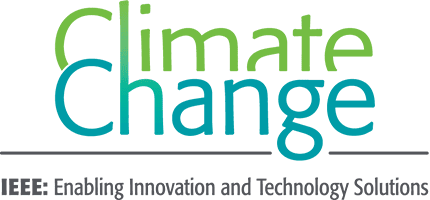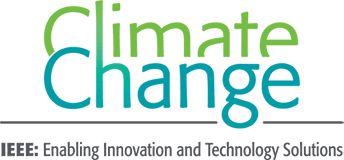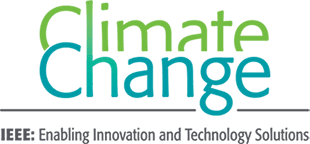Global Summits Drive Inclusive Energy Solutions
The International Energy Agency’s events emphasized equitable energy transitions. IEEE Young Professionals were there along with global leaders calling for inclusive policies, clean cooking access, gender equality, and innovative financing models.
NOTE: The views expressed here are solely those of the author and/or interview subject and do not represent positions of IEEE. Some references may require subscription to access content.
Over the course of 2024, the International Energy Agency (IEA) convened a series of high-impact events aimed at tackling urgent global energy challenges and promoting equitable, people-centered solutions. Drawing together a wide range of voices from government, business, Indigenous communities, youth groups, and labor organizations, including youth representatives from Sustainable Development Goal 7 (SDG7), Sustainable Energy for All (SEforAll), and Student Energy, these gatherings emphasized the need for collaborative, multi-sector approaches to foster a sustainable and inclusive energy transition.
As a member of the IEEE Young Professionals Climate and Sustainability Task Force (CSTF), Dr. Sneha Hegde attended and participated in these events. Below she provides her perspective on the outcomes. Dr. Hegde also serves as a Young Professional leader within her professional homes, IEEE Computer Society and IEEE Dielectrics and Electrical Insulation Society.
The IEA Global Summit on People-Centered Clean Energy Transitions (April 26, 2024, in Paris) set a strong foundation for advancing inclusive energy policies. Paris Mayor Anne Hidalgo and IEA Executive Director Dr. Fatih Birol delivered keynote talks underscoring the importance of ensuring that clean energy transitions benefit all communities, especially the most vulnerable. The summit explored themes of labor dynamics, gender equality, policy design, and public engagement. Leaders discussed the need to create new jobs and inclusive career paths as part of the clean energy workforce, recognizing that skill-building and equitable access are central to a just transition.
Addressing gender disparities, representatives from IEEE Young Professionals CSTF called attention to the barriers women face in accessing energy-related education and employment, urging for greater mentorship and leadership training through groups like IEEE Women in Engineering. On the policy front, the summit highlighted the importance of designing frameworks that distribute the benefits of clean energy across all sectors of society, with a strong focus on public engagement to ensure these transitions are community-informed and widely supported.
Continuing the dialogue on equitable access, the IEA Summit on Clean Cooking in Africa (May 14, 2024, at UNESCO Headquarters in Paris) turned the spotlight on the clean cooking crisis affecting 2.3 billion people globally with significant health, environmental, and socio-economic impacts, especially for women. Leaders framed clean cooking access as essential to human dignity and a critical public health issue, emphasizing that access to safe cooking technologies could prevent millions of health-related deaths while also reducing emissions. The summit marked a milestone with financial pledges, notably the African Development Bank’s $2 billion commitment, supported by contributions from Norway and other partners, underscoring a serious, collective effort to improve health and environmental outcomes.
At the UN COP29 IEA 1st High-Level Energy Transition Dialogue (May 15, 2024, in Paris), global attention shifted to emissions reduction strategies aligned with the 1.5°C climate goal. Leaders discussed the energy sector’s central role, with an emphasis on electrifying transportation and expanding electric vehicle infrastructure. Simon Stiell, Executive Secretary of UN Climate Change, and Eamon Ryan, Irish Minister for Transport, Climate, Environment, and Communications, emphasized the necessity of robust financial commitments, especially for supporting clean energy projects in developing countries.
The second dialogue, COP29 IEA 2nd High-Level Energy Transition Dialogue (June 24, 2024, in London), reinforced the importance of financing, spotlighting the $2 trillion needed to achieve net-zero targets in developing economies, with the private sector anticipated to supply approximately 80-90% of this investment. Discussions focused on bridging the gap between investors and energy projects in emerging markets. Leaders explored innovative financing models, such as blended finance and carbon credits, that can mitigate risks and make clean energy projects more bankable and scalable, emphasizing that a sustainable energy future requires the alignment of public and private finance.
In October 2024, Brazil’s G20 Presidency convened a meeting of energy ministers to discuss the Clean Cooking Roadmap at the G20 energy negotiations in Foz do Iguaçu, Brazil. This initiative aims to advance universal access to clean cooking by boosting financial support, expanding markets, facilitating knowledge sharing, and strengthening policy backing. The roadmap will guide upcoming clean cooking initiatives, as leaders recognize that clean cooking is fundamental to an equitable energy transition.
These IEA-led events highlight the importance of multi-sector collaboration in achieving a just, sustainable energy future. IEEE Young Professionals played a role in such global dialogues, offering fresh perspectives on technological challenges and reinforcing the importance of youth voices in shaping a sustainable energy future.
The IEEE Young Professionals program, a global network of over 120,000 members, provides resources and opportunities for young engineers and technical experts to connect, develop their careers, volunteer, and contribute to technological advancements.
In December 2024, IEEE and ITU will convene the IEEE-ITU Symposium on Achieving Climate Resilience to address four specific building blocks: Research, Technology and Standards; Policy, Regulation, and Implementation; Education and Skills Development; and Finance, Trade, and Development. An outcome of the Symposium will be a technology roadmap that supports climate resilience and policy integration.
Attendance is limited and by invitation. Interested parties may make a request to participate at the Symposium website.
Acronyms:
- IEA – International Energy Agency. The IEA is at the heart of global dialogue on energy, providing authoritative analysis, data, policy recommendations, and real-world solutions to help countries provide secure and sustainable energy for all.
- SDG – Sustainable Development Goal. Adopted by the UN member states, the SDGs provide a shared blueprint for peace and prosperity for people and the planet.
- COP – Conference of Parties. Part of the UN, COP is the climate summit where international climate agreements are forged. COP29 will be held in Baku, Azerbaijan in 2024.
UNESCO – United Nations Educational, Scientific, and Cultural Organization. UNESCO is a specialized agency of the UN that promotes international cooperation in education, science, and culture.


